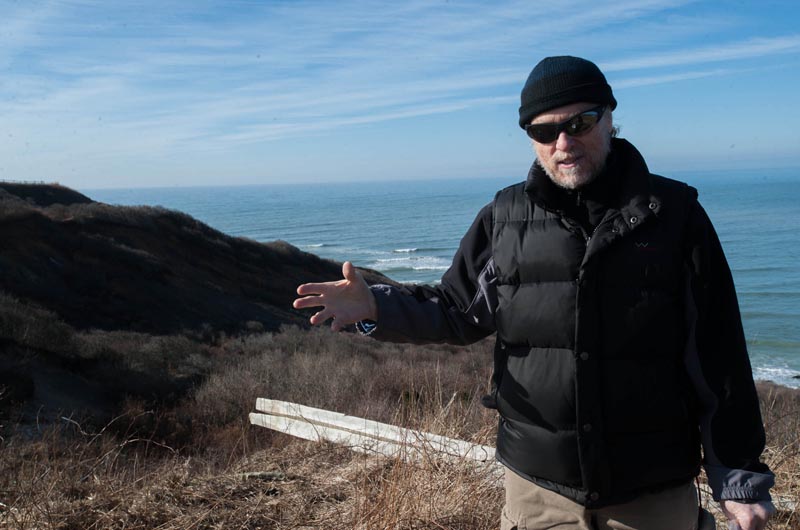William Waterway of Edgartown, environmental activist and visionary known nationally and beyond, died suddenly in his beloved Katama home on Sept. 12.
Born to Charles Thomas Marks and Evelyn Pruden Marks in Towaco, N.J., on Jan. 13, 1949, he was the third of nine children. Like his father, he was strong in mind, body and spirit, his siblings recalled, and able to transform life’s setbacks into opportunities. He seldom complained, and over the course of his life, worked diligently to make the world a better place.
Like William, the family farm was ahead of its time. It was organic before “organic” became a desirable symbol of healthy living. It had a hand-dug well, and the siblings were well fed, largely through the labors of their own hands. They helped sow the fields in spring, tend the animals, repair the barn and fencing, and they ran the small farm stand to remediate the farm’s expenses. It is here that William learned his strong work ethic and duty to the collective whole.
As a boy, he liked to walk the woods, trailblazing, with the shotgun his father had gifted him. In young adulthood his life encompassed trailblazing for the cause of water as he rode horseback across the country and was handed the keys to cities amidst cheering. From writing the transformative work, The Holy Order of Water: Healing Earth’s Waters and Ourselves to a call to serve on the United Nations Water Council, and from corresponding with dignitaries and heads of state to produce Water Voices from Around the World and redesigning the theory of our water cycle, his was a pivotal role in reshaping the way we approach and tend to our planet. He never stopped pioneering, begging us to “reevaluate our interactive relationship with water” (and the natural world) for the good of humanity.
He attended Catholic school and excelled in academics and sports in Boonton, N.J. He was co-captain of the football team and a member of the all-state lacrosse team. He graduated from Fairleigh Dickinson University and became employed as an ecologist and water planner for the city of Newark, N.J. He traced the origins of environmental pollutants leading to legislation for more stringent environmental restrictions.
William’s efforts were not solely on a global scale. He worked enthusiastically on the local level, serving his community as robustly as he endeavored globally. He lobbied in Washington, D.C., for the preservation of the Gay Head Light, founded Martha’s Vineyard Magazine, established the Vineyard’s first water testing facility and invigorated the longest-running poetry group in the United States, calling it the Cleaveland House Poets. All the while he built relationships that would help him serve the greater good, the protection of the environment and the encouragement of the arts.
William loved to watch birds (he participated in the piping plover bird count), taking his canoe across the waters of Katama Bay and playing flute on one of the instruments in his growing collection. He enjoyed volunteering at MVTV, conducting interviews with anyone with an interesting story to share. He was an avid reader, always seeking to broaden his knowledge.
William was no stranger to mortality. After a near-death experience in his thirties, he developed a strong belief in the afterlife which opened up an abiding connection with the flora and fauna of the planet. He referred to his life as a “flowing journey,” stating in The Holy Order of Water, “Through water we are connected to every life form that exists, has existed and will exist.” May he find eternity in the continuum of this non-perishing force.
William is survived by his daughter Sarah Oldham; his brothers Charles Marks, Brian Marks, Timothy Marks, and Kevin Marks; and his sisters Patricia Griffin, Karen Marks and Bernadette Grunstra. A sister, Lee Gagliardo predeceased him.
A memorial service is planned in autumn.


Comments (1)
Comments
Comment policy »